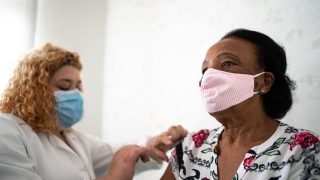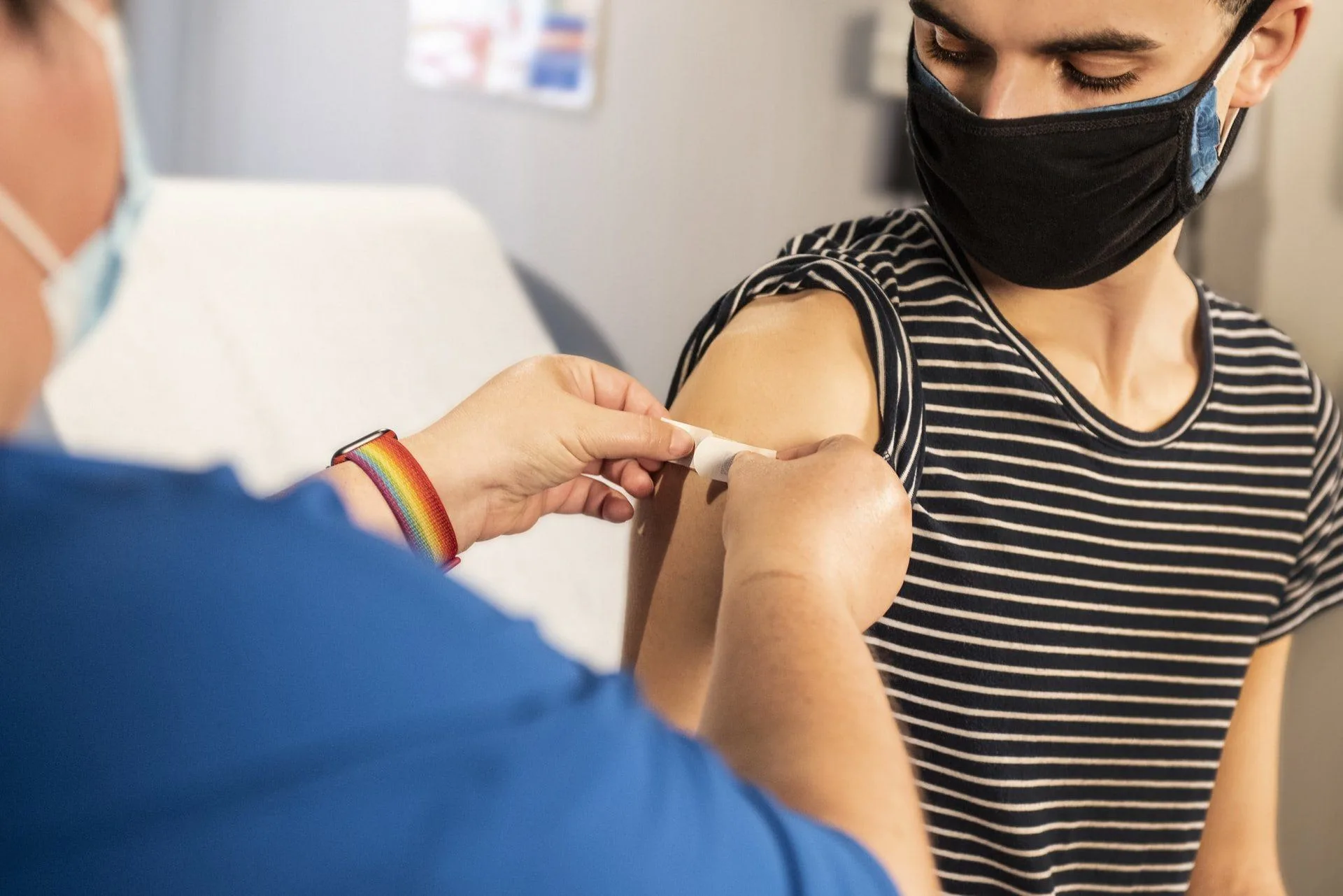A 2021 study that suggested receiving the COVID-19 vaccine before elective surgery can help to reduce the risk of death has been awarded the Guinness World Records title for the most authors on a single peer-reviewed academic paper.
“Being awarded the Guinness World Records title for the world’s largest scientific collaboration highlights the scale of our global partnership, which aims to contribute to our understanding of COVID-19 and help to save as many lives as possible around the world.” says study co-lead author Mr Aneel Bhangu, a surgeon from the University of Birmingham,
“It marks the commitment and hard work of thousands of medical colleagues around the world to understand the changes that are needed in how surgery must be delivered if we are to beat the virus and reduce its impact on surgical patients.
Record-Breaking Study On Vaccines and Elective Surgery
The study, published this past March in the BJS, was led by the University of Birmingham and funded by the NIHR.

Maksim Shmeljov/Shutterstock
An international team of researchers, courtesy of the COVIDSurg Collaborative, examined data for 141 582 patients from 1 667 hospitals in 116 countries, including Australia, Brazil, China, India, UAE, the UK and the US.
“We used the evidence available for vaccine efficacy, along with what our large surgical study showed about the increased risk of contracting and dying from COVID-19, to estimate the impact of vaccination on all patients undergoing inpatient elective surgery,” said Janet Martin, associate professor at Western University’s Schulich School of Medicine & Dentistry. She is also a member of the COVIDSurg Collaborative.
Vaccine saves (post-surgery) lives
Research has suggested between 0.6% and 1.6% of patients develop Covid-19 infection after elective surgery. These patients then face a four and eight-fold increased risk of death in the 30 days following surgery.
That said, the study suggested prioritizing the vaccination of elective surgery patients could help prevent many deaths. How many? 58 687 COVID-19-related deaths in one year.
“Based on what we know about the number of surgeries that occur globally, we were able to show we could save close to 60,000 patients around the world if we can immediately prioritize elective surgery patients for vaccines,” said Martin.
 The study also suggested that, while older adults and cancer patients are already prioritized, there is a benefit to vaccinating every age group for every type of elective surgery,
The study also suggested that, while older adults and cancer patients are already prioritized, there is a benefit to vaccinating every age group for every type of elective surgery,
“In every single age group that we looked at there was an advantage of having the vaccine before surgery, even among 18- to 49-year-olds and 50- to 69-year-olds, most of whom are not yet eligible for the vaccine.”
The future of vaccinations
According to the authors, if the COVID-19 waves persist, then elective surgeries may be canceled or postponed once again. As such, prioritizing the vaccination of elective surgery patients could have many benefits. Prioritizing their vaccination could decrease post-operative pulmonary complications, as well as ICU use and overall healthcare costs.
So how many people need to get vaccinated?
How many jabs to help prevent a COVID-related death over a year in patients 70 and older?
The study suggested that 1840 members of the general population need to be jabbed.
However, if we prioritize vaccinating surgical patients, then this number drops significantly. The study says that only 351 patients aged 70 and older undergoing cancer surgery need to be vaccinated.
The researchers also advised the importance of pre-surgery vaccination in low- and middle-income countries.
How accurate is the study?

HPV vaccine can reduce the risk of cervical cancer
The estimates “should be interpreted with caution”. Additionally, case fatality rates were based on data from England. Also, vaccine efficacy rates were based on clinical trials, not effectiveness in surgical patients specifically.
The bottom line
“Restarting elective surgery is a global priority,” said co-lead author Dr. Dmitri Nepogodiev of the University of Birmingham.”Over 15,000 surgeons and anaesthetists from across 116 countries came together to contribute to this study, making it the largest ever scientific collaboration.
It’s crucial that policymakers use the data we have collected to support a safe restart to elective surgery. COVID vaccination should be prioritized for elective surgery patients ahead of the general population.”
Want to know more?
When it comes to the COVID-19, you may be interested to know about the sex disparities surrounding the virus. For instance, women are experiencing stronger side effects from the vaccines than men.





![women [longevity live]](https://longevitylive.com/wp-content/uploads/2020/01/photo-of-women-walking-down-the-street-1116984-100x100.jpg)









